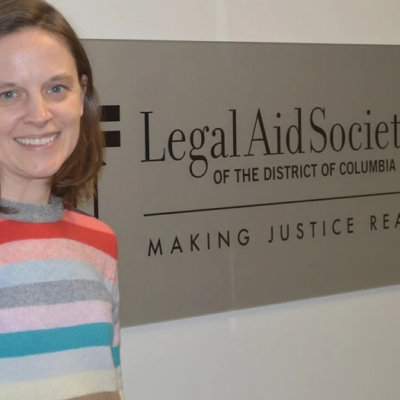DC Bar Foundation Awards Access to Justice Grants to Legal Services Providers East of the River
The DC Bar Foundation recently announced the 2017 recipients of the Access to Justice Grants Program, which awards grants to DC-based organizations that provide free legal help to low-income DC residents. This year, over $4.5 million was awarded to more than thirty DC-based legal services providers, including more than $3 million in grant funding for providers assisting residents of underserved areas. In 2016, Access to Justice grantees served nearly 23,000 DC residents, 52 percent of whom live in Wards 7 and 8. In addition to the multiple legal services providers receiving grants to assist low-income and vulnerable citizens across DC, several grants will benefit East of the River residents directly. One new grantee for 2017, Tzedek DC, received funding to assist low-income DC residents in debt-related legal matters, including providing community outreach by partnering with the United Planning Organization in Ward 7. Bread for the City received continued funding for its community lawyering work at its offices on Good Hope Road SE. The project’s attorneys work directly with the community to help identify options to tackle issues affecting its residents and, when needed, provide substantial direct representation to the residents. The project focuses on affordable housing, housing conditions, and hiring practices. The grant awarded to Whitman-Walker Health will provide legal representation, counseling, and outreach to people living with HIV/AIDS and other low-income residents East of the River, through lawyers based at its Max Robinson Center in Southeast DC. Whitman-Walker offers free legal aid to lesbian, gay, bisexual, and transgender individuals in DC, regardless of HIV status, and to health care patients regardless of sexual orientation, HIV status, and gender identity. Children’s Law Center received continued funding for its Healthy Together Medical-Legal Partnerships with Unity Healthcare’s Minnesota Avenue clinic in Northeast DC, and with clinics in Southeast DC. In this medical-legal collaboration, the lawyers provide services through the Unity Healthcare clinic and two Southeast clinics of the Children’s National Medical Center, working with families of CNMC patients to identify and resolve non-medical solutions to children’s health issues. Neighborhood Legal Services Program received continued funding to provide neighborhood-based legal aid in the areas of housing, family law, and public benefits through NLSP’s office Ward 7 on Polk Street NE, which will provide low-income residents of this underserved community with free and accessible legal assistance. And the Legal Aid Society of the District of Columbia received continued public funding to support their Southeast Neighborhood Access Project, which provides clients with access to lawyers who work in two neighborhood offices in Wards 7 and 8.








